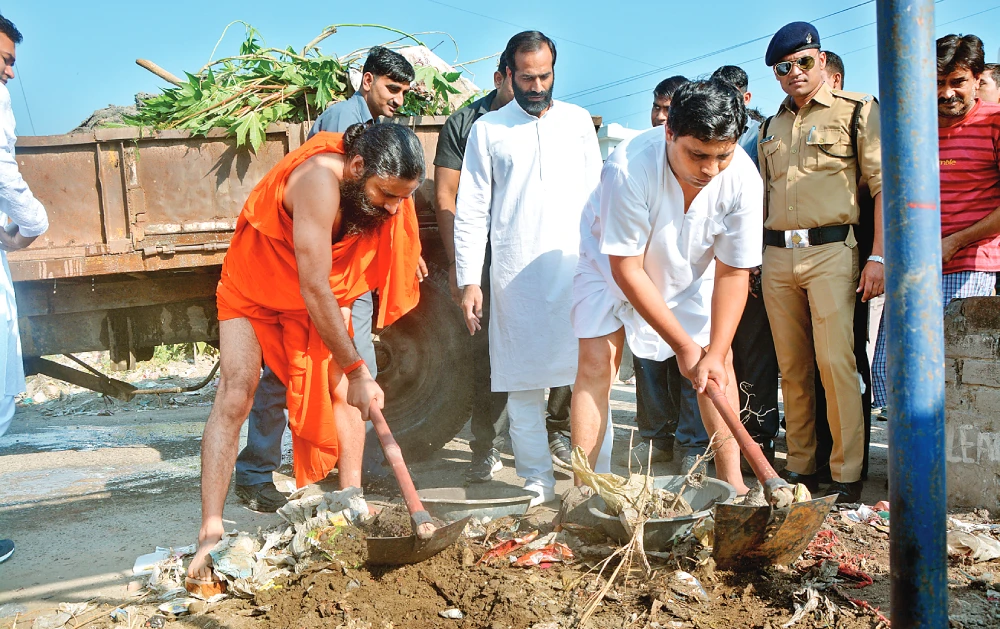Environmental Sustainability

» Reduction In Carbon Footprint
Patanjali is dedicated to reducing its carbon footprint through the use of 100% renewable electricity, including solar and wind power, across its operations. The organisation also implements energy efficiency measures, such as upgrading to energy-efficient lighting and machinery, and optimising production processes. These initiatives collectively help reduce greenhouse gas emissions, promote sustainable resource use, and contribute to cleaner, healthier communities.
» Afforestation and Tree Planting:
The organisation’s tree planting drives is focusing on native and medicinal plants to enhance biodiversity and promote traditional health practices. These efforts are integrated with organic farming projects, encouraging agroforestry among farmers to improve soil health and provide additional income sources. Patanjali also conducts educational campaigns to raise awareness about the importance of environmental conservation. Through these initiatives, Patanjali not only helps mitigate climate change and preserve ecosystems but also promote community engagement and economic development, demonstrating its holistic approach to health and sustainability.



